- Home
- Leslie Meier
Bake Sale Murder Page 21
Bake Sale Murder Read online
Page 21
District Attorney Frederick P. Smith told Judge Wilfred P. Lawless that Burkhart committed the murders in an attempt to protect her husband, Buck Burkhart, 55. Buck Burkhart, who coached the Tinker’s Cove Warriors to an unprecedented 3-0 winning season, has admitted that he was wanted by Massachusetts police in connection with a 1976 bank robbery that resulted in the death of a Boston police officer, John Joseph O’Toole. Police killed two of the robbers, later identified as members of a radical leftist group known as the People’s Liberation Front, but Burkhart, who was never identified, escaped and successfully eluded capture for nearly thirty years.
“This man,” said Smith, pointing to Coach Burkhart, “whom we know as Buck Burkhart, upstanding citizen, educator, coach, and father, has been living a lie. He now admits he was the getaway driver in the robbery that took the life of Officer O’Toole.”
Bonnie Burkhart, who entered a plea of not guilty, displayed no emotion during the brief arraignment proceeding, but Coach Burkhart listened with his face in his hands as Smith described the alleged murder of Mimi Stanton by his wife. “When Bonnie Burkhart realized that her new neighbor on Prudence Path was the daughter of John Joseph O’Toole, the police officer killed in the robbery for which her husband was wanted, she feared her husband would be recognized, so she took matters into her own hands. She viciously stabbed Mimi Stanton to death in her own kitchen, using the victim’s own carving knife. And what was Mimi Stanton doing when she was killed? She was baking cookies for a charity bake sale.”
Burkhart is also charged with murdering Stanton’s brother, Thomas Preston O’Toole, by drowning. Investigators allege that Burkhart met O’Toole, a recovered alcoholic with no permanent address, in the Tinker’s Cove harbor and supplied him with a bottle of bourbon. When he became drunk she tipped him into the water, holding him down with one of the life-saving poles that are kept at the docks in case someone accidentally falls into the water.
Judge Lawless refused bail for Bonnie Burkhart, who will be held in the County Correctional Institution pending trial in Gilead Superior Court. A pretrial conference date was set for October 20. The judge also approved extradition of Buck Burkhart to Massachusetts, where he will finally face charges for the murder of Officer O’Toole. Under Massachusetts’s felony murder rule, anyone who participates in a robbery resulting in a death can be charged with first-degree murder. If found guilty, both Burkharts could receive life sentences. Their young daughters are in the care of relatives under the supervision of the Department of Social Services.
All charges have been dropped against Fred Stanton, who had previously been charged with his wife’s murder.
Retired Police Chief Oswald Crowley will take over Burkhart’s job as coach of the Tinker’s Cove Warriors football team. (See related story: Crowley vows zero-tolerance for hazing, Chapter 2.)
“Wow, that’s quite a story,” said Sue, folding her copy of the Pennysaver and laying it on the table. The Gang of Four was gathered at Jake’s for their Thursday morning breakfast together and Lucy had brought copies of the paper for everyone to read.
“She seemed so nice,” said Rachel, shaking her head.
“Those poor little girls,” clucked Pam. “What will happen to them?”
“That’s the one bright spot. They’re with the coach’s brother. He’s a former priest who married a former nun. They were too old to have children of their own when they got married and they plan to adopt the twins. They say this is just proof that God works in mysterious ways,” said Lucy, who had spoken with the couple at the arraignment.
“Well, call me a heretic but I think God could have been a little tidier. Like maybe giving Coach Buck mad cow disease or something,” said Sue.
“I agree,” said Lucy. “Just think of all the heartbreak that could’ve been avoided if Coach Buck had an auto accident on the way to the robbery. Officer O’Toole would have lived, Mimi’s family would have remained intact, the whole terrible chain of events would have been avoided.” She took a bite of English muffin.
They all fell silent for a minute, thinking of the enormous suffering caused by a foolish college student’s ill-considered adventure.
“What I don’t understand,” said Pam, “is how Bonnie figured out that Mimi was O’Toole’s daughter.”
“I wondered about that myself,” said Lucy. “I don’t think she ever did. I think it must have been the other way around: Mimi figured out who Coach Buck was.”
“I think you’re right,” said Sue. “After all, she was a little troublemaker in her own way. She went right after Chris when she discovered she was operating a home business.”
“She went after Miss Tilley’s hedge,” said Rachel. “And Lucy’s lilacs.”
“I think it started with the hazing. Tommy was having a hard time making the team and she might well have decided to look into Coach Buck’s qualifications, something like that.”
“She didn’t really have to know,” said Pam. “Imagine if she’d told Bonnie she didn’t think much of the way the coach was running the team and was going to check him out. Bonnie would have freaked.”
“Paranoia would have done the rest,” said Rachel.
“You’re right there,” said Lucy. “She overheard me talking to the coach about the hazing situation and decided I was a threat to him. I think she’d really gone over the edge by then.”
“And face it,” said Sue, “emotions were running high that morning, what with the bake sale and all.”
“No, no.” Pam shook her head. “You can’t blame the bake sale. The bake sale was a good thing. I got several matching grants from banks and businesses, plus a donation of backpacks from Country Cousins, and—ta-da!—we gave fully-stocked book bags to thirty-one kids.”
“That reminds me,” said Rachel, smiling at Sue, “how are things going at the other end of the economic spectrum?”
“Fantastic. That Chris is something. We have bank financing, we’re going to construct our own building, we’re aiming to open next September and I have no doubt everything will be on time, on target, and on budget,” said Sue, positively beaming. “And we have a motto, too. ‘Where every child is a wonder child.’”
They all groaned.
“I know, I know,” said Sue, “it’s a little over the top. But that’s what parents want nowadays. Believe me, the days of ‘Duck, Duck, Goose’ are long gone. Now it’s ‘Proton, Neutron, Electron.’” Seeing their blank faces she explained, “The electron gets to run. Same game, different terms. It helps them become comfortable with scientific terminology.”
“Yikes,” said Rachel. “Thank goodness Richie’s all grown up. I had enough trouble with all those dinosaur names.”
“You did just fine,” said Lucy. “He went to Harvard, after all.”
They fell silent, turning their attention to their breakfasts. All except Sue, who never had anything more than coffee in the morning.
“I guess you’ll be getting some new neighbors on Prudence Path,” she said. “The Burkharts certainly won’t be needing their house.”
“Oh!” Lucy’s hand flew to her mouth. “That’s my big news!”
“Like this wasn’t big?” said Rachel, tapping the paper.
“This is bigger,” said Lucy, humming the wedding march. “Molly and Toby have set the date! And…” she drew out the word, “they’re buying the notorious Burkhart house. Turns out, the Burkharts were only renting. And Fred is so grateful for my efforts on his behalf that he’s giving the kids a real good price.”
“That’s terrific,” said Sue, thinking ahead. “I’ll be happy to help with the wedding.”
“We’ll have an exorcism before they move in,” said Rachel.
“And I know where they can get good furniture cheap,” said Pam.
“Yes to all of you,” said Lucy. “Now I’ve got to go back to work.”
“Oh, just one thing before you go,” said Pam. “There was something I wanted to discuss.”
Lucy sat down. “Shoot.”
“Well,” began Pam, “you know what a big success the bake sale was, right?”
They all nodded in agreement.
“Well, I was thinking about Columbus Day. A lot of people come to Tinker’s Cove that weekend to see the foliage. Leaf-peepers. And I was thinking that since we seem to have this bake sale thing nailed, we ought to do it again and get a head start on the Christmas fund. What do you think?”
“Only if I can make my Better-Than-Sex Brownies,” said Sue.
“No problem.”
“I suppose I can whip up some Kitchen Sink cookies,” groaned Rachel.
“And I’ll make Nutty Meringues,” said Pam. “What about you, Lucy? Dog biscuits?”
“Woof-woof,” agreed Lucy, throwing a five-dollar bill on the table and making a fast escape.
Kitchen Sink Cookies
1 cup butter or margarine
1 cup brown sugar
1 cup granulated sugar
2 eggs
1 cup peanut butter
2 cups flour
½ teaspoon salt
2 teaspoons baking soda
1 cup rolled oats
Optional amounts of chocolate chips, raisins, or nuts
Beat butter or margarine and sugars together until light and fluffy. Add eggs, beating until well blended. Add the peanut butter, mixing well. Sift together flour, salt, and baking soda and mix in, along with oats. Stir in optional chocolate chips, raisins, or nuts. Roll into balls, place on ungreased cookie sheet, press down with a fork. Bake 12 minutes at 350 degrees.
Chris notes: “I usually make half the batter into cookies and freeze the other half. Then, when I need more cookies I just defrost the dough, roll, and bake. Otherwise this recipe makes a huge number of cookies. The cookies do freeze well, if you prefer to bake all at once.”
Better Than Sex Brownies
1 cup unsalted butter
2 cups sugar
2 teaspoons vanilla extract
¾ cup cocoa
4 eggs
1 cup all-purpose flour
½ teaspoon baking powder
¼ teaspoon salt
1 cup chopped nuts
1 cup semi-sweet chocolate chips
Heat oven to 350 degrees. Butter 13 x 9-inch baking pan. Melt butter in large saucepan over low heat. Remove from heat and stir in sugar, vanilla, and cocoa. Add eggs, beating well after each addition. Add dry ingredients making sure everything is well mixed. Pour batter into prepared pan and bake for 30-35 minutes until brownies begin to pull away from sides of pan. Cool completely on wire rack before spreading frosting.
Creamy Brownie Frosting
6 tablespoons butter, softened
6 tablespoons cocoa
2 tablespoons light corn syrup
1 teaspoon vanilla extract
2 cups confectioners sugar
2 tablespoons milk
In a small bowl cream butter, cocoa, corn syrup, and vanilla. Add confectioners sugar and milk. Beat to spreading consistency, adding a bit more milk if needed.
Not many people in Tinker’s Cove, Maine, knew Old Dan Malone. The grizzled barkeep’s social circle was limited to the rough-hewn lobstermen and other assorted toughs that frequented his bar, a derelict main street dive called, appropriately, the Bilge. But when his body is found bobbing in the town’s icy harbor, Lucy Stone, ace reporter for the Pennysaver newspaper, makes getting to know more about Old Dan a priority. And apparently, there’s lots to learn.
Like the fact that local musician Dave Reilly insists Old Dan conned a winning lottery ticket worth five grand from him. And that handyman Brian Donohue claims that Old Dan stiffed him for repair work he’d done at the bar. There are even whispers about some connection to the Irish Republican Army. The confusion surrounding the death is only compounded by the arrival of actor Dylan Malone, Old Dan’s brother and a prominent, if fading, attraction of the Dublin stage. Dylan has come to direct the production of Finian’s Rainbow, the feautred event at Our Lady of Hope’s annual St. Patrick’s Day extravaganza. He’s also come to help his brother renovate the Bilge, turning the dingy tavern into an authentic—if decidedly upscale—Irish pub.
Was Old Dan killed by someone he’d cheated, someone he’d loved, or someone who just couldn’t stand the idea of losing their favorite watering hole? While Lucy can’t be sure, one thing is abundantly clear—the stage is set for a murder mystery with a killer ending!
Please turn the page for an exciting sneak
peek at Leslie Meier’s
ST. PATRICK’S DAY MURDER
coming next month in hardcover!
Prologue
The last customer hadn’t left the bar until nearly two a.m.—well past the eleven p.m. closing time mandated by the town bylaws in Tinker’s Cove, Maine—but that didn’t bother Old Dan very much. He’d never been one to fuss about rules and regulations. No, he was one who took the inch and made it a mile. If they wanted him to close at eleven, well, they could jolly well send over a cop or two or ten and make him. Though he’d be willing to wager that wouldn’t go down well with the clientele. He chuckled and scratched his chin, with its week’s worth of grizzled whiskers. That crowd, mostly rough and ready fishermen, didn’t have a high regard for the law, or for the cops who enforced it, either. No, close the Bilge before the customers were ready to call it a night, and there’d be a fine brouhaha.
And, anyway, he didn’t sleep well these days, so there was no sense tossing out some poor soul before he was ready to go, because, truth be told, he didn’t mind a bit of company in the wee hours. He knew that if he went home and to bed, he’d only be twisting and turning in the sheets, unable to calm his thoughts enough to sleep.
That’s why he’d started tidying the bar at night instead of leaving it for the morning. The rhythmic tasks soothed him. Rinsing and drying the glasses, rubbing down the bar. Wiping the tables, giving the floor a bit of a sweep. That’s what he was doing, shuffling along behind a push broom to clear away all the dropped cigarette butts and matches and dirt carried in on cleated winter boots. He braced himself for the blast of cold and opened the door to sweep it all out, back where it belonged. But it wasn’t the cold that took his breath away. It was a bird, a big crow, and it walked right in.
“And what do you think you’re doing?” he demanded, feeling a large hollowness growing inside him.
“You know quite well, don’t you?” replied the crow, hopping up onto the bar with a neat flap of his wings. The bird cocked his head and looked him in the eye. “Don’t tell me an Irishman like you, born and bred in the old country, has forgotten the tale of Cú Chulainn?”
He’d not forgotten. He’d heard the story often as a boy, long ago in Ireland, where his mother dished up the old stories with his morning bowl of oats. “Eat up,” she’d say, “so you’ll be as strong as Cú Chulainn.”
He found his mind wandering and followed it down the dark paths of memory. Had it really been that long? Sixty odd years? More than half a century? It seemed like yesterday that he was tagging along behind his ma when she made the monthly trek to the post office to pay the bills. “’Tisn’t the sort of thing you can forget,” he told the crow. “Especially that statue in the Dublin General Post Office. A handsome piece of work that is, illustrating how Cú Chulainn knew death was near and tied himself to a post so he could die standing upright, like the hero he was.”
“Cú Chulainn was a hero indeed,” admitted the crow. “And his enemies couldn’t kill him until the Morrighan lit on his shoulder, stealing his strength, weakening him….”
“Right you are. The Morrighan,” he said. The very thought of that fearsome warrior goddess, with her crimson cloak and chariot, set his heart to pounding in his bony old chest.
“And what form did the Morrighan take, might I ask?” inquired the bird.
“A crow,” he said, feeling a great trembling overtake him. “So is that it? Are you the Morrighan come for me?”
“What do you think, Daniel Malone?” repli
ed the crow, stretching out its wings with a snap and a flap and growing larger, until its great immensity blocked out the light—first the amber glow of the neon Guinness sign, then the yellow light from the spotted ceiling fixture, the greenish light from the streetlamp outside, and finally, even the silvery light from the moon—and all was darkness.
Chapter 1
Maybe it was global warming, maybe it was simply a warmer winter than usual, but it seemed awfully early for the snow to be melting. It was only the last day of January, and in the little coastal town of Tinker’s Cove, Maine, that usually meant at least two more months of ice and snow. Instead, the sidewalks and roads were clear, and the snow cover was definitely retreating, revealing the occasional clump of snowdrops and, in sheltered nooks with southern exposures, a few bright green spikes of daffodil leaves that were prematurely poking through the earth.
You could almost believe that spring was in the air, thought Lucy Stone, part-time reporter for the town’s weekly newspaper, the Pennysaver. She wasn’t sure how she felt about it. Part of her believed it was too good to be true, probably an indicator of future disasters, but right now the sun was shining and birds were chirping and it was a great day to be alive. So lovely, in fact, that she decided to walk the three or four blocks to the harbor, where she had an appointment to interview the new harbormaster, Harry Crawford.
As she walked down Main Street, she heard the steady drip of snow melting off the roofs. She felt a gentle breeze against her face, lifting the hair that escaped from her beret, and she unfastened the top button of her winter coat. Quite a few people were out and about, taking advantage of the unseasonably fine weather to run some errands, and everyone seemed eager to exchange greetings. “Nice day, innit?” and “Wonderful weather, just wonderful,” they said, casting suspicious eyes at the sky. Only the letter carrier Wilf Lundgren, who she met at the corner of Sea Street, voiced what everyone was thinking. “Too good to be true,” he said, with a knowing nod. “Can’t last.”

 Christmas Card Murder
Christmas Card Murder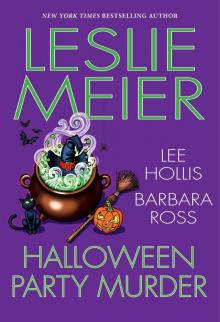 Halloween Party Murder
Halloween Party Murder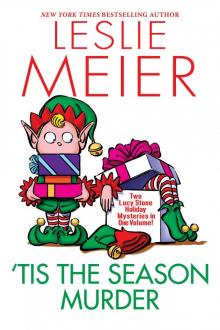 'Tis the Season Murder
'Tis the Season Murder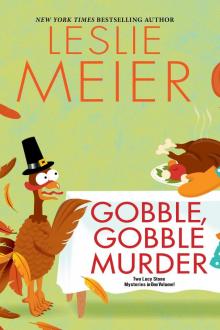 Gobble, Gobble Murder
Gobble, Gobble Murder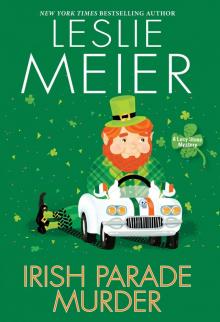 Irish Parade Murder
Irish Parade Murder Bake Sale Murder
Bake Sale Murder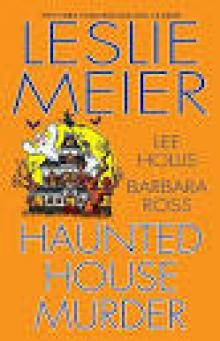 Haunted House Murder
Haunted House Murder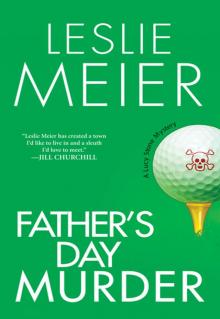 Father’s Day Murder
Father’s Day Murder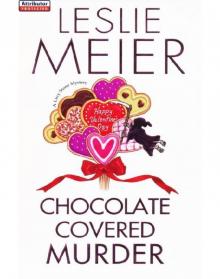 Chocolate Covered Murder
Chocolate Covered Murder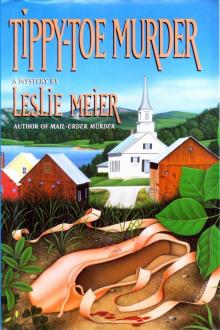 Tippy Toe Murder
Tippy Toe Murder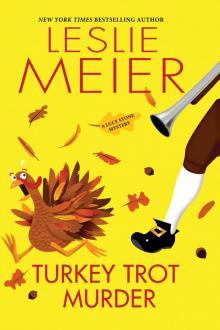 Turkey Trot Murder
Turkey Trot Murder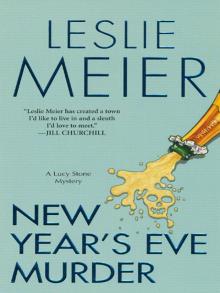 New Year's Eve Murder
New Year's Eve Murder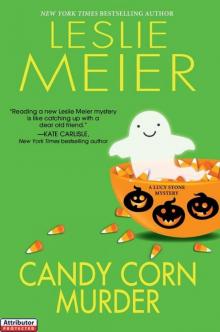 Candy Corn Murder
Candy Corn Murder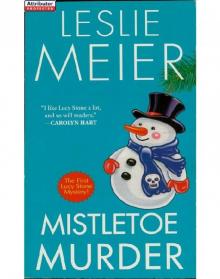 Mistletoe Murder
Mistletoe Murder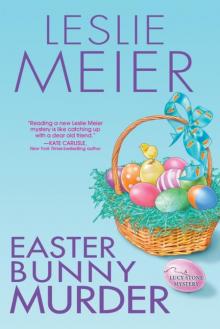 LStone 20 - Easter Bunny Murder
LStone 20 - Easter Bunny Murder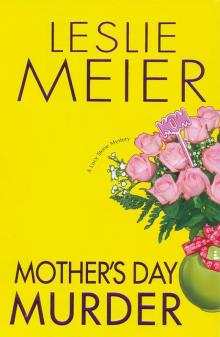 Mother's Day Murder
Mother's Day Murder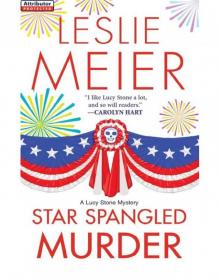 Star Spangled Murder
Star Spangled Murder Silver Anniversary Murder
Silver Anniversary Murder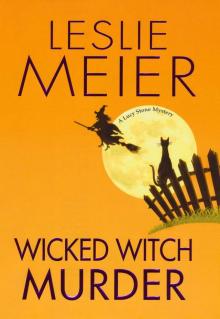 Wicked Witch Murder
Wicked Witch Murder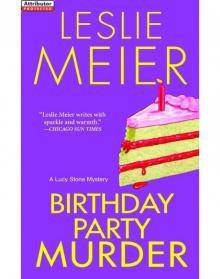 Birthday Party Murder
Birthday Party Murder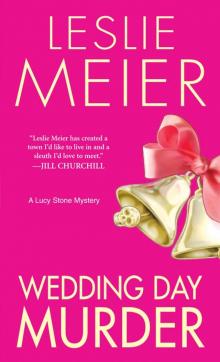 Wedding Day Murder
Wedding Day Murder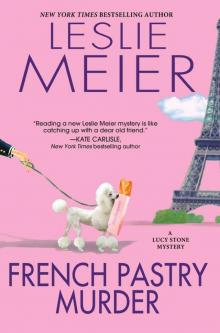 French Pastry Murder
French Pastry Murder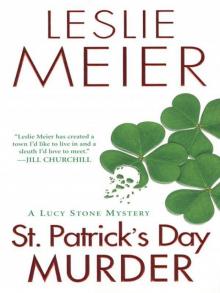 St. Patrick's Day Murder
St. Patrick's Day Murder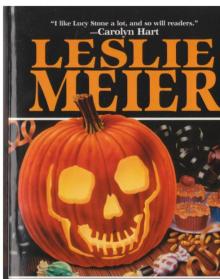 Trick or Treat Murder
Trick or Treat Murder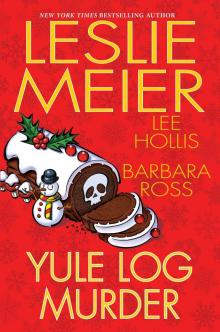 Yule Log Murder
Yule Log Murder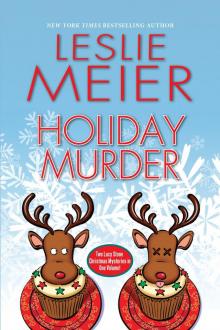 Holiday Murder
Holiday Murder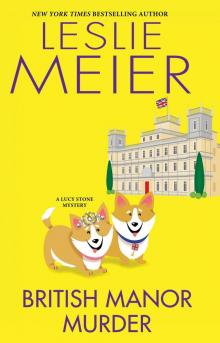 British Manor Murder
British Manor Murder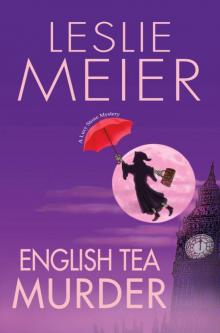 English Tea Murder
English Tea Murder